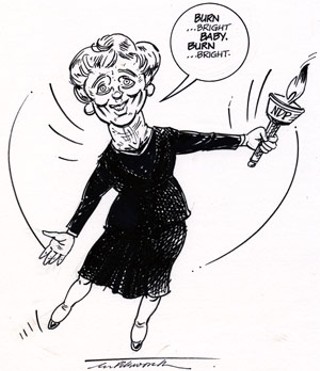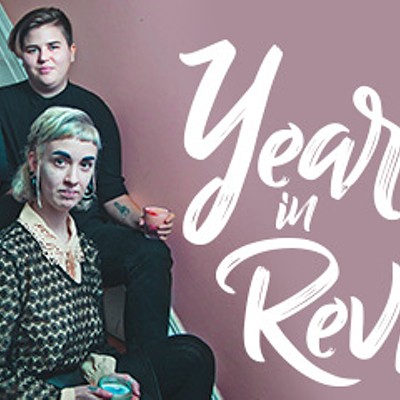There's something comfortably old-shoe about attendingan NDP gathering in Halifax. You're almost certain to run into someone you know. The neighbour down the street you saw mowing his lawn in the rain last week, the young couple with the toddler who just bought the fixer-upper on the next block, the sales clerk from the drug store you'd never have guessed was a New Democrat.
There are plenty of people you do recognize, or think you should: Lawyers, doctors, social workers, public servants, teachers, professors, small business operators... a sterling collection of what Alexis MacDonald's nominator would refer to as "passionate professionals." The McInnes Room at the Dalhousie Student Union Building was full of them last Monday night, as more than 600 New Democrats gathered to choose their candidate in the riding of Halifax for the October 14 federal election.
It has not always been so. In 1979, when Alexa McDonough launched her quixotic quest to win the Halifax seat for the NDP, you could probably have held her nominating convention in a small seminar room and still had space for a class. On Monday night, MC Susan Dodd filled up time between speeches introducing this NDP MP or that NDP MLA who'd somehow been overlooked during an earlier laundry list reading of elected party dignitaries present and accounted for. And the quest for the seat is no longer quixotic. The NDP has held Halifax for over a decade and has an equally tight lock on all Metro provincial ridings.
But if Monday's standing-room-only nominating event was symbolic of how far the party has come, it also offered an uncomfortable reminder of how far it has to go.
The reminder came courtesy of Irvine Carvery, the longtime Africville activist and one of three candidates for the party nomination. There was no public mention Monday night of the "miscommunication" over registering new members that Carvery claims "put the screws" to his chances for the nomination, and cost the party dozens of new black members. (For details on that internal squabble, check out the new FedElex '08 blog at thecoast.ca.)
But Carvery's presence was reminder enough. By comparison with winning candidate Megan Leslie's high-tech, big-screen, endless-loop video touting her endorsements and accomplishments, and even second-place finisher Alexis MacDonald's legion of printed, placard-waving supporters, Carvery's campaign was bare bones. No balloons,no posters.
His nominators were not "passionate professionals." Donna Nelligan, the president of the Uniacke Square Tenants' Association, who placed Carvery's name in nomination, conceded she was "nervous" to be on stage, while his seconder, the organization's vice president, added she was "new to this." Both received warm, encouraging rounds of applause, as did Carvery himself. The applause for Carvery, in fact, was strongest and longest after the first ballot when it was announced he'd placed last and had been eliminated.
Perhaps it was guilt.
In his speech, Carvery had made the case that, as someone who'd lived with poverty and racism and poor housing, he could be the "voice of authenticity" for the NDP in a country---and party---where the poor themselves are "still invisible." Carvery had gone through the riding's membership list, he added, and discovered that "the vast majority" of members lived in single-family homes. "Not one" came from Uniacke Square or any of the city's other public housing projects.
"We need to do more to reach out...to involve those people who are not here tonight," he said. They do. The NDP, which has finally become the party of choice for a broad spectrum of Haligonians, could use a few unfamiliar faces at the party.
















